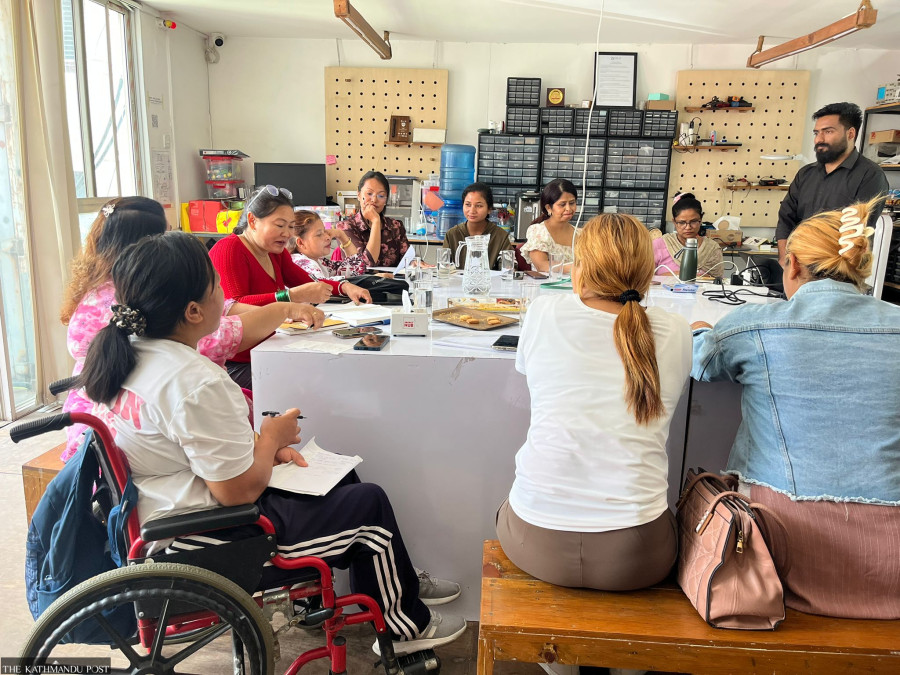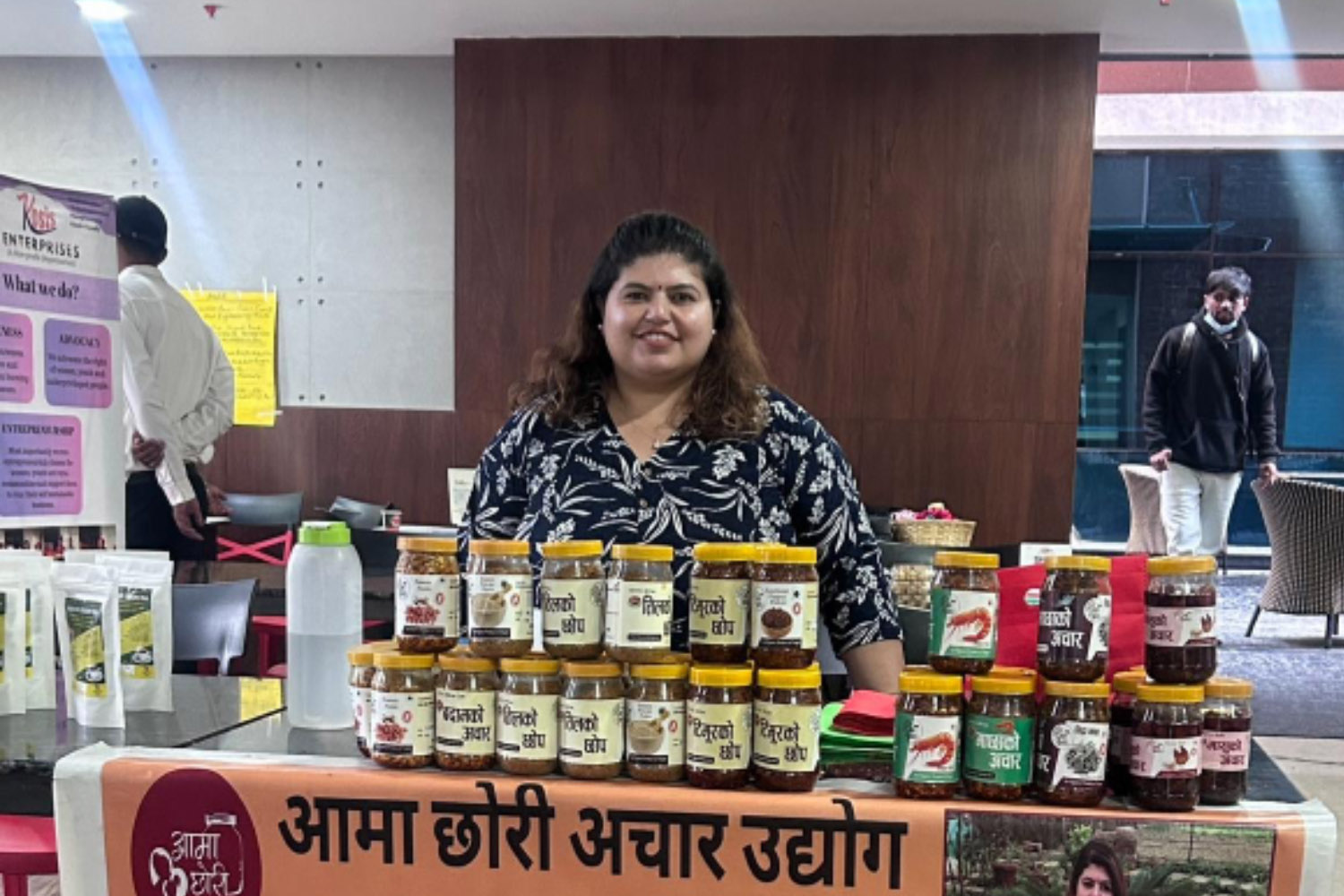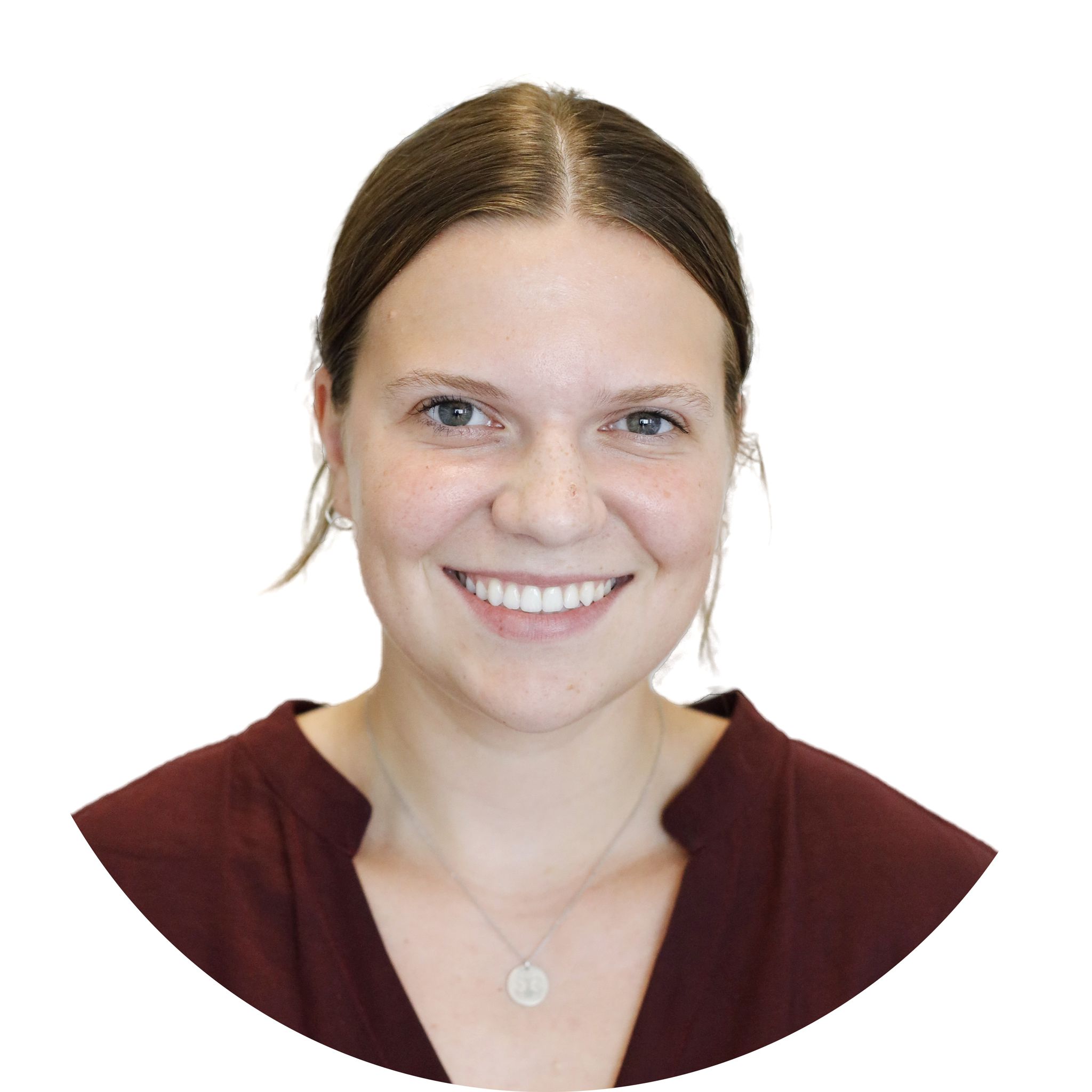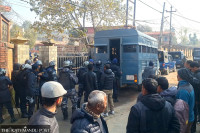Valley
Women entrepreneurs with disabilities seek to scale up their businesses
A Kathmandu-based non-profit organization is equipping them with essential skills, and grants, to help them grow their enterprises.
Ellie Davis
Rupa Aryal has always had a hard time finding a job because of her mobility disability. During a hospital visit for a fever when she was two years old, a spinal injection from a doctor damaged her leg. Now she walks with the help of crutches and a leg brace.
After repeatedly facing judgment from employers who didn’t think she was capable of working, Aryal decided to take matters into her own hands four years ago.
“I decided it’s time to stop looking for work and give myself a job,” she said. So she started her own pickle-making business with the help of her mother; Aryal named the enterprise ‘Aamaa Chhori Achar.’
“There’s no doubt that people with disabilities have always faced challenges in finding the right workplace,” she said. “Having a physical disability is not my choice, but I consider it my strength.”
Aryal has now joined a programme with 10 other female entrepreneurs with disabilities to gain business skills and grow her company.
The Building Entrepreneurial Access Models (BEAM) programme is run by Impact Hub Kathmandu, a non-profit organization that supports social-impact driven entrepreneurship. BEAM’s Programme Assistant Suchitra Adhikary says the programme offers a much-needed opportunity for people with disabilities to gain access to entrepreneurship.
“In Nepal’s context, people with resources are given more opportunity, and entrepreneurship is limited to them,” she said. “When we talk about business, we should not exclude people with disabilities.”
Impact Hub Kathmandu first focused on women with disabilities' entrepreneurship through conducting research for the Economic and Social Commission for Asia and the Pacific.

“When researching, we found out that lack of access to finance is a big barrier for women entrepreneurs,” Programmes and Research Officer at Impact Hub Kathmandu Rashi Maharjan said. “We realised they need business support.”
One of the objectives of the Impact Hub Kathmandu is to support startup businesses that will have positive social and environmental impacts. They often support businesses that are focused on combating climate change, promoting sustainability, and fostering inclusion.
Maharjan says promoting inclusion needs to be a top priority in both the private and public sectors in Nepal. “If you look at the major political parties, we don’t even see women, let alone a person with disabilities,” Maharjan said. “So I think that we’re already behind doing things like these.”
Impact Hub Kathmandu sent out a call last December for applications from female entrepreneurs with disabilities to participate in the BEAM programme. They kicked off the programme in February with the first of a series of ‘masterclasses’ that are aimed at equipping the 11 entrepreneurs with the tools they need to build their businesses, such as digital marketing, finance, and business strategy.
On Thursday, Impact Hub Kathmandu hosted its fifth masterclass, focusing on teaching finance and accounting skills, such as calculating revenue and profit. Inspired by the first season of Shark Tank Nepal, which premiered on July 2, each entrepreneur delivered their own mock pitch. “Everyone is so eager to learn,” Adhikary said of the group. “They are so motivated in themselves.”
For many of the entrepreneurs, this workshop gave them their first lesson on how to keep financial records. Aryal said that she wished she had these skills when she started her achar business.
At the end of the six-month programme, each entrepreneur will receive a grant to support their business growth based on their need. With the grant, Aryal hopes to improve her achar’s packaging in the short term and in the long term, hopes to provide more employment opportunities for people with disabilities.
“My goal is to open a separate company and create job opportunities for people like me—those with disabilities—as well as others in need,” she said.
Rita Singh, one of the entrepreneurs with a mobility disability, also hopes to use the grant to help make Nepal more accessible for people with disabilities. She recently became the owner of Nawabi Biryani in New Baneshwar, but she regrets that the restaurant space is located above a flight of stairs and is not wheelchair accessible. “If I get investors, I want to get a restaurant in an accessible place so everyone can enjoy the food,” she said.
Impact Hub Kathmandu plans on hosting the entrepreneurs’ BEAM programme graduation ceremony in November, with the entrepreneurs having gained the essential skills they need to grow their businesses.
“Their stories are truly inspiring,” Adhikary said. “At Impact Hub, we are not just talking about inclusivity, we are creating it.”




 10.12°C Kathmandu
10.12°C Kathmandu











